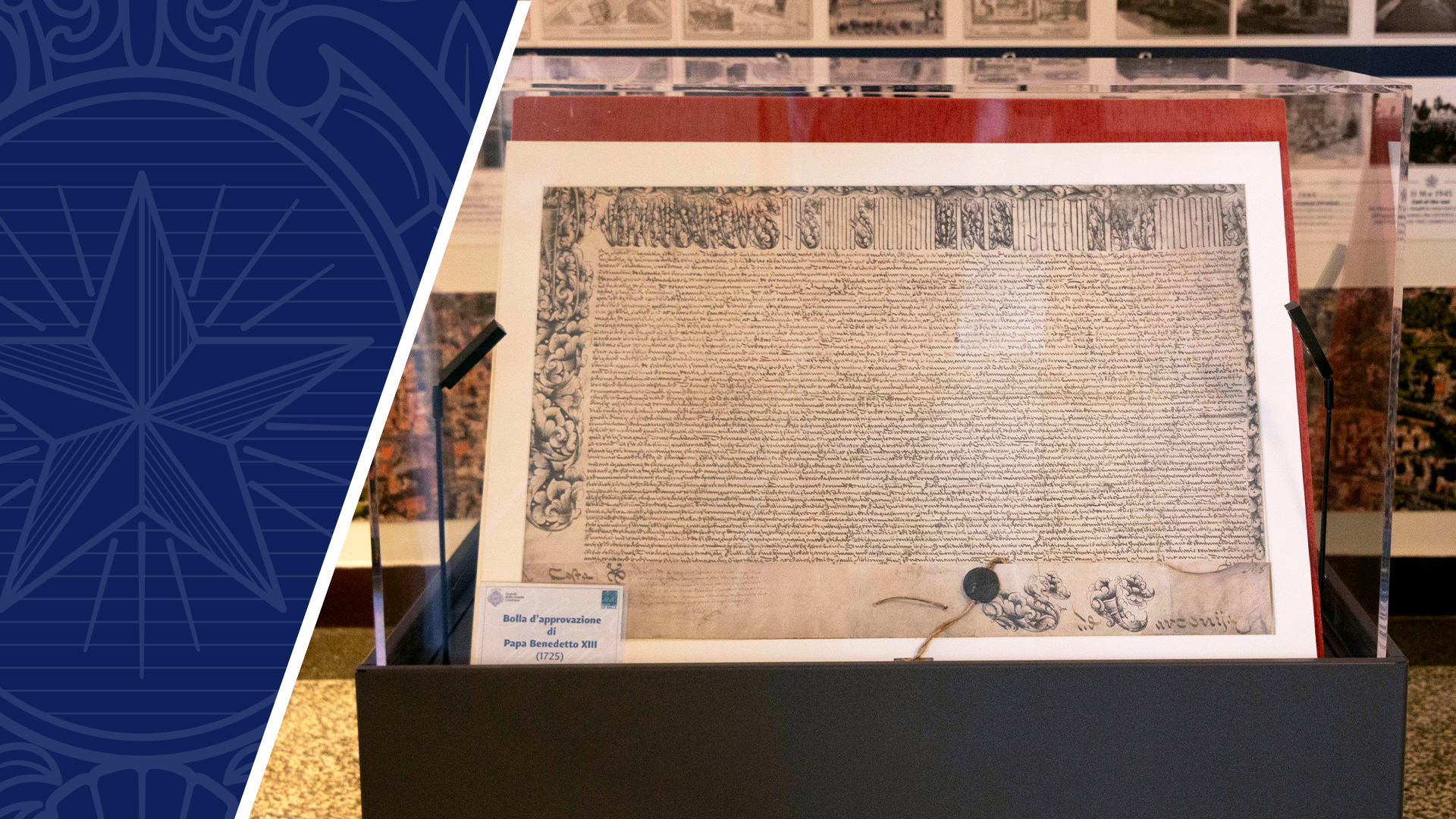300 years ago, on 26 January 1725, Pope Benedict XIII granted the Institute of the Brothers of the Christian Schools the Papal Bull of Approbation by which the universal Church embraced and endorsed the work begun in Rheims (France) by John Baptist de La Salle.
On the occasion of the Tercentenary of the Bull of Approbation, Brother Josean Villalabeitia, Vce-Postulator of the Institute, shares some insights to understand the meaning and importance of the Bull in our days.
1. Consolidation of the Institute
 Brother Timothy, who was the Superior General of the Institute in 1725 – and the second successor of St John Baptist de La Salle – had been determined to achieve official and ecclesiastical recognition of the Institute “for the consolidation of our small community…”.
Brother Timothy, who was the Superior General of the Institute in 1725 – and the second successor of St John Baptist de La Salle – had been determined to achieve official and ecclesiastical recognition of the Institute “for the consolidation of our small community…”.
This was not a minor issue, for by receiving the Letters Patent from King Louis XIV on 28 September 1724 and the Bull of Approbation a few months later, the nascent Institute achieved the legal and ecclesiastical recognition that would enable it to strengthen its management and organisation in order to carry out its educational mission.
2. Strengthening lay identity
One of the most important fruits of the Bull of Approbation of the Institute has to do with the strengthening of its lay identity. “Before the Bull, there were already some important points on which the Brothers had already tried to define, to determine, to discover their identity, what they wished to be”, explains Brother Josean. “Without wanting to say them all, I can think, for example, of the Memorandum of the Habit, the two formulas of consecration, of the Heroic Vow and that of 1694, or the Rules”.
In fact, “the Bull speaks of the lay character of the Institute. It says that the Brothers will not aspire to holy orders, to the ecclesiastical state“, underlines the Vice-Postulator of the Institute, recalling that also “the Bull incorporated into the profession of the Brothers the three classic vows of the religious: poverty, chastity and obedience”, which also “went from being the three original vows to the five that we profess today, although with some changes”.
For all that, Brother Josean affirms that “the Bull is an invitation to continue seeking responses for our identity in these new times in which we are living; responses cathat the Holy Spirit will give us, that the Holy Spirit will in some way breathe into us, through our decisions”.
3. Evangelising character and invitation to interiority
Another key aspect of the Bull of Approbation is that “it is very concerned with catechesis, with the Gospel, with the sacraments, with prayer”, according to Brother Josean. This Christian perspective permeates the Lasallian mission, for ours is “a school which is ultimately Christian” and “this is a something that continues to this day”.
Likewise, the Bull also gives great importance to the life of faith and community life, “because those Brothers were concerned at that time (…) with community life and also to a certain extent (…) with the whole question of interiority, prayer, meditation, and these matters more directly related to spirituality”, the religious concludes.
- On the occasion of the Tercentenary of the Letters Patent and the Bull of Approbation of the Institute, a virtual exhibition has been set up on LaSalle.Org which includes documents, photographs and historical images. The exhibition can be accessed HERE.
- The Institute has launched the “Being an Educator Today” Contest on the occasion of the 75th Anniversary of the Proclamation of St. John Baptist de La Salle as Universal Patron of Educators. HERE you can find all the information to participate.
- A microsite with resources for living the Year of Lasallian Spirituality, including articles, publications, multimedia materials and weekly reflections on the writings of the Founder, will soon be available on LaSalle.Org. Visit https://www.lasalle.org/en/and follow us on social media.



